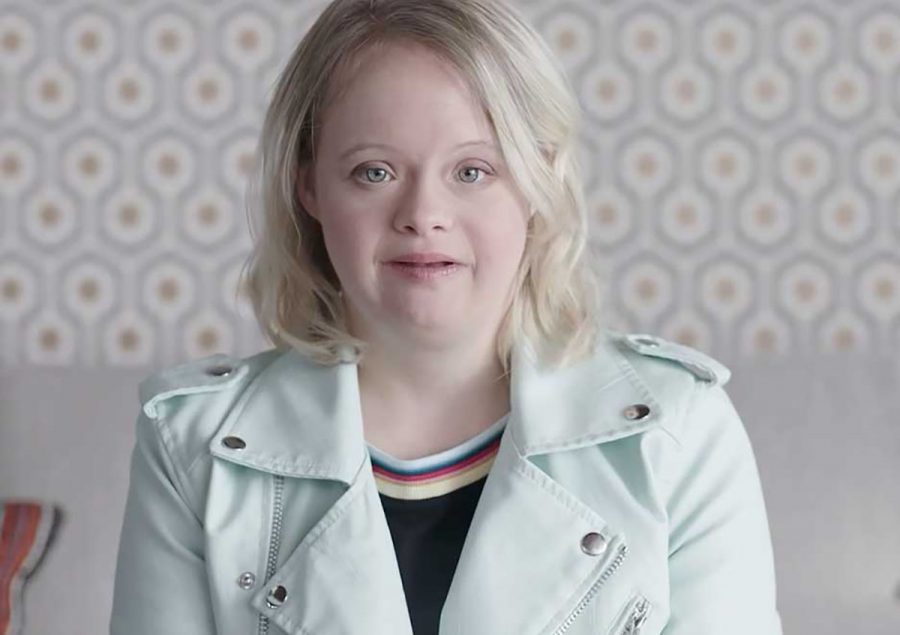‘Special needs’ is not a dirty term
The term isn’t ready to be retired
More stories from Erica Jones
Photo by submitted
Lauren Elizabeth Potter, an actress with Down syndrome, stars as the spokesperson in the “Not Special Needs” video, created by CoorDown.
When children are very young, they are taught about words they shouldn’t say.
For the most part these are swear words, but the list also includes other derogatory terms pertaining to certain races, cultural groups or people with physical differences or disabilities.
The term “special needs” is not among these words that are looked down upon.
Recently, an Italian organization called CoorDown created a video advertisement entitled “Not Special Needs” to address the stigma that sometimes accompanies the idea of Down syndrome. The video is a call for the term “special needs” to be retired.
In the video, Lauren Elizabeth Potter, an actress from the TV show Glee who has Down syndrome, says a person would have special needs if they needed to eat dinosaur egg for breakfast, or to get massages from cats.
According to the Center for Disease Control and Prevention (CDC), Down syndrome affects approximately one out of every 700 babies born in the U.S.
While I understand the desire to cut down on negativity or judgment surrounding intellectual and other disabilities, this advertisement overlooks the additional help people with Down syndrome may require.
According to the CDC, hearing loss, sleep apnea and ear and eye infections are common among children with Down syndrome, in turn requiring more attention and aid for the affected person.
Also, because Down syndrome is an intellectual disability, people who have the disability sometimes go through intervention programs, as they may face developmental delays that need to be addressed in or outside of school.
“Special needs” is not meant as a condescending or derogatory term, but rather a way to categorize people who may benefit from or even rely on having a little extra assistance.
Having special needs is not a negative thing. There is nothing wrong with needing help. However, completely eliminating the term “special needs” is a step the world is not ready to take.
In the “Not Special Needs” ad, Potter says people with Down syndrome need education, jobs and opportunities, just like everyone else.
I agree with this sentiment. Just like everyone else, this demographic also deserves respect.
In an article from Disability Africa, the author argues the term “special needs” is used to describe people with impairments, but has more recently become a further-disabling term. They also share an idea with the “Not Special Needs” video — the needs of those with Down syndrome are the same as those without it, in this case “water, food, shelter and love.”
Every human being shares these needs; that much is crystal clear. But not everyone needs early intervention programs to address delayed learning speeds. Not everyone needs extra work on their motor skills. Those who need this help are no less respectable or equal than those who don’t, but it is indisputable this help is above and beyond what the average person requires.
Special needs is not a further disabling term. It is used as a way to place those who require a little extra help, especially in the educational realm, in a group where they will get what they need. This label helps teachers and administrators pay proper attention to those who take a little longer to learn or need more specialized curriculum.
Special doesn’t mean bad; it just means different. Everyone has their differences and everyone deserves respect. The real problem comes when special needs becomes a derogatory term, but we’re not there, and it doesn’t have to be seen that way.

